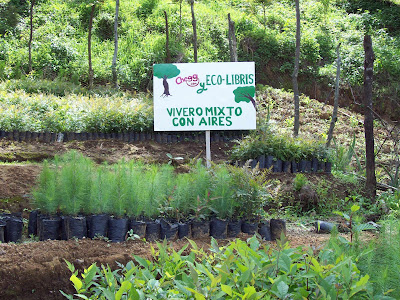 Last week we wrote here about our partner Chegg and their renting textbooks' model. This is a great model and it's an example of the innovative thinking that tries to find an alternative to the current expensive (average of USD 1,000 per year in the US), not environmental friendly and irritating textbook system.
Last week we wrote here about our partner Chegg and their renting textbooks' model. This is a great model and it's an example of the innovative thinking that tries to find an alternative to the current expensive (average of USD 1,000 per year in the US), not environmental friendly and irritating textbook system.And this search has generated another great idea which has a good chance to influence the future of the textbook industry: open source free online textbooks.
This innovative concept comes from Flat World Knowledge (thanks to Springwise for the update!)
How does it work exactly? Flat World Knowledge explain on their website:
Our books might feel like your current book – for a minute. They are written by leading experts, and are peer- reviewed, edited, and highly developed. They are supported by test banks, .ppt notes, instructor manuals, print desk copies, and knowledgeable service representatives. There the similarity ends. Instead of $100 plus, our books are FREE online. We don't even require registration! Students just enter the URL they're given by their instructor and start reading. It's that easy. No tricks. No popup ads. No "a premium subscription is needed for that".
In fact, our free books go beyond what standard print editions provide with integrated audio, video, and interactive features, powerful search capabilities, and more.. Even better – read our books where you are! If you are a student in Facebook, then read our book using our Facebook app. Still free. If you are an instructor using an LMS like Blackboard, you can integrate our book into your LMS. Yep. Still free. It is what it is. Just great books, by great authors, at a great price – zero. Don't want to read online? Don't. Read on to learn about our other convenient and affordable choices. Nice segue.
And there are also editing options for faculty (they can change the content of the textbook and adjust it for their class) and social learning applications for students. Sounds great? wait, there's one more benefit: "no more being forced to switch to new editions. Ever. Whether you make changes or use our book as is, with Flat World Knowledge, you move to new editions when you have time and when you see merit. Not when we do."
It definitely sounds too good to be truth and brings up the unavoidable question: where's the catch? how they do money? well, there's actually no catch and money is made from non-online versions of these textbooks (print, audio, PDF) and study aids sold to the students. Still, pricing is very affordable - printed textbooks for around $30 and audio books for around $25. What I like even more is that the free online content is ad-free which is quite rare these days when it comes to free online content.
What are the benefits of this new offer terms of the environment? it will definitely save trees and that's great. Is it environmentally superior to paper-made textbooks? we'll need to have a life-cycle analysis to determine that. My guestimation is that since no production of e-book reader is necessarily involved in the process, there's a good chance that Flat World Knowledge's online textbooks are much better to the environment (more on this issue can be found on our e-books vs. paper books resource page).
Springwise reports that Flat World Knowledge is conducting a beta test in which it is offering four different textbooks online for free to hundreds of students at 15 colleges and universities across the U.S. Let's hope this beta test will succeed and the Flat Work Knowledge's open source textbook concept will keep expanding!
You're welcome to check out Flat World Knowledge's development so far and their plans to 2008-2009 and watch one of their video clip to learn more (videos can be found on their homepage - http://www.flatworldknowledge.com/minisite/):
Yours,
Raz @ Eco-Libris
Plant a tree for every book you read!
















